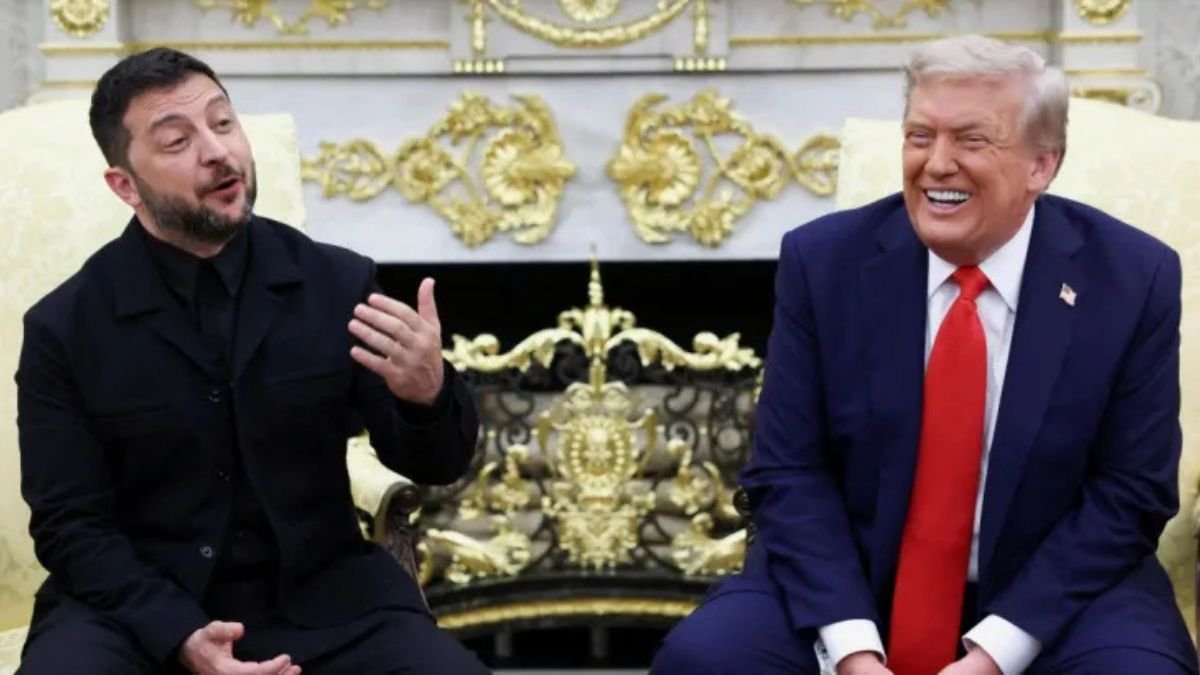The war between Russia and Ukraine has now passed more than two years. During this time, not only the lives of millions of people have been affected, but it has also had a profound impact on the politics, economy and diplomacy of the whole world. There have been many attempts for ceasefire and peace talks, but no permanent solution has been found so far. Recently, once again the possibility of trilateral talks is being expressed at the international level, which may include Russia, Ukraine and a third mediator country.
But the question arises that what can be expected from this dialogue? Will there really be a concrete path to peace, or will this also remain only a formality? Let us understand this through five important questions.
Will trilateral talks really be possible?
The situation so far has been that direct talks between Russia and Ukraine have often failed. Many countries like the European Union, America, China and Turkey have tried to mediate, but no permanent result has come out. This time there is a discussion that a “trilateral platform” can be prepared, which will include both the countries along with an influential mediator country.
The question is who will be that third country and how much credibility will it have for both the sides. If the mediator is a member of the US or the European Union, Russia will be suspicious. If it is China or Turkey, Ukraine may object. In such a situation, creating an impartial platform will be the biggest challenge.
What will be Ukraine’s conditions?
Ukraine has repeatedly made it clear that it will not compromise on its sovereignty and territorial integrity at any cost. Russia occupied Crimea in 2014 and took control of many parts of eastern Ukraine in the 2022 war. Ukraine demands that Russia give up the occupation and withdraw its troops.
But the practical situation is that Russia is not ready to leave Crimea and has also strengthened its political and military hold in the Donbass region. In such a situation, the question is whether Ukraine will agree to some limited agreement under international pressure, or the talks will also fall prey to the same old deadlock.
What will be Russia’s strategy?
From Russia’s side, this war is not just a battle for territorial control, but is also linked to its politics of “security” and “influence”. Russia believes that NATO’s expansion in Eastern Europe is a threat to its national security. This is the reason why the possibility of Ukraine joining NATO seems unacceptable to Russia.
Russia’s first condition in the talks may be that Ukraine should be prevented from joining NATO. Also, Russia would also like that the economic sanctions imposed on it should be eased. But this is possible only if Russia is ready for some kind of ceasefire or limited agreement.
How important will the role of the international community be?
The role of Western countries and international organizations has been the most important in this entire conflict. The US and the European Union are constantly helping Ukraine economically and militarily. On the other hand, Russia has been getting indirect support from countries like China and Iran.
The success of the trilateral talks will depend on how the international community exerts pressure. If the US and European countries prepare Ukraine for a deal and China puts pressure on Russia, only then can the talks move forward.
But it is also true that geopolitical competition between the superpowers has been dragging this conflict more than resolving it. In such a situation, the question is whether this time global politics will pave the way for peace or will it also remain only a game of power balance.
Is there any real possibility of peace?
The biggest question is whether any concrete solution will emerge from the talks this time. The people of both countries have been suffering the pain of war for a long time. Millions of people have been displaced, thousands of lives have been lost and the economy has been badly devastated.
Although the possibility of talks is a positive sign, it has to be remembered that peace does not come only from a paper agreement. For this, both sides will have to move forward with honesty. A lasting solution is possible only if Russia and Ukraine rise above their political agendas and prioritise the suffering of the people.
Conclusion
The Ukraine-Russia war is not just a conflict between two countries, but it has become a question of peace, security and stability for the entire world. There are hopes from the possible trilateral talks, but there are also many doubts attached.
FAQs
Q1. What are Ukraine-Russia peace talks?
A. Ukraine-Russia peace talks are diplomatic negotiations aimed at ending the ongoing conflict between the two countries and finding a sustainable solution for peace and security.
Q2. What does a trilateral talk mean in this context?
A. A trilateral talk refers to negotiations involving Ukraine, Russia, and a third neutral or influential country acting as a mediator to facilitate dialogue.
Q3. Why is a third party needed in Ukraine-Russia negotiations?
A. Direct talks between Ukraine and Russia have often failed. A third party can mediate, build trust, and create a balanced platform for both sides.
Q4. Which countries are likely to mediate the trilateral talks?
A. Potential mediators could include China, Turkey, or neutral European nations. The choice depends on who both sides consider acceptable and credible.
Q5. What are Ukraine’s main demands in the negotiations?
A. Ukraine seeks the withdrawal of Russian troops, restoration of its territorial integrity, and security guarantees against future aggression.
